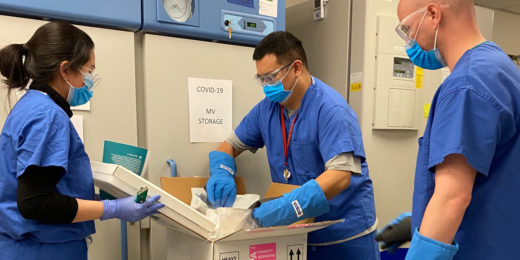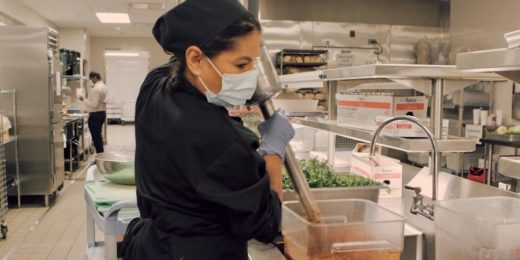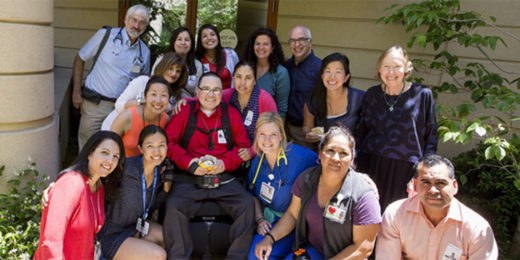With COVID-19 information evolving daily, the Stanford Health Care pharmacy team had to prepare for the unexpected in its vaccine rollout.
Month: June 2021
Universal hepatitis B screenings can save lives and cut costs, study says
Stanford researchers find that screening all adults in the United States one time for hepatitis B could save money and lives.
Attitude toward mistakes — and lack of self-care — harm physicians’ well-being
A survey shows there's nothing inherent about being a physician that leads to burnout. The problems are long hours and shame about errors.
Finding redemption through criminal justice reform
After prison, Shaka Senghor dedicated himself to being a voice for the incarcerated and leading young Black men away from lives of crime.
Understanding the risks of seizure-stopping drugs in pregnancy
Newer anti-seizure drugs have a good safety profile for the baby when used in pregnancy and breastfeeding, according to a Stanford-led study.
Neuroscientist’s book traverses the extremes of human behavior
Stanford bioengineer, neuroscientist and psychiatrist Karl Deisseroth has written a new book -- and it’s not a ‘science book.’
Computer simulation may yield new COVID-19 drug
Stanford Medicine researchers have discovered a drug that could potentially be used to stave off SARS-CoV-2, the virus that causes COVID-19.
From Oaxaca to Stanford, via blueberry farms in the Northwest
The daughter of a farmworker, medical student Gianna Nino-Tapias draws strength from her Mixtec ancestors.
New findings expand hopes for a stem cell cancer ‘vaccine’
Induced pluripotent stem cells share proteins with some cancers. The cells can be used as a vaccine to prevent pancreatic cancers in mice.
Cook’s family recipe lifts hospital employees’ spirits during COVID
Serving chilaquiles, a Mexican breakfast, is one way Stanford Health Care food service workers support hospital workers during the pandemic.
Coronavirus takes aim at insulin-producing cells in the pancreas
Stanford Medicine researchers discover that the virus behind COVID-19 attacks insulin-producing cells in the pancreas.
Experts: It’s time to eliminate race-based medicine in patient care
Using racial classifications to guide care could result in poorer health outcomes for non-white patients, medical professionals say.
Why many stage 3 colorectal cancer patients skip chemo
As risk factors such as no health insurance and low income accumulate, colorectal cancer patients are less likely to finish chemotherapy.
An elite club: 10 years with a ventricular assist device
After 10 years of living with a special device that helps the heart pump blood, one pediatric patient is part of an elite group of survivors.
Molecular clues could signal eye cancer survival odds
Stanford Medicine researchers discover that certain proteins can predict survival for patients with a type of eye cancer.
To benefit diverse groups, AI must address bias, researchers say
Steps must be taken to prevent bias in sex, gender and race in health data gathered using artificial intelligence, Stanford researchers write.

















